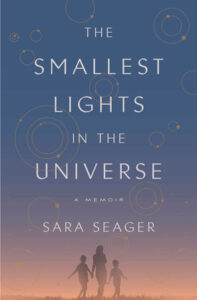Finding light in the dark
Sara Seager’s research into the stars and beyond revitalizes her after a traumatizing loss

The Smallest Lights in the Universe, by Sara Seager, published by Crown in 2020.
A renowned astrophysicist, Sara Seager has found more than scientific discoveries in her research into deep space she has also found solace. After the death of her husband, Seager was left to raise her two sons, manage her house, and delve into her career as a planetary scientist. Feeling alone on Earth, she turned her gaze upward to explore what else might be out there.
In her new memoir The Smallest Lights in the Universe, published by Crown, Seager, a professor in MIT’s departments of earth, atmospheric and planetary sciences and physics, and a scientist at MIT Kavli Institute for Astrophysics and Space Research, discusses her life and the way her studies and the people she met along the way helped to ground her and yet also help her find lofty goals and hope. As the book description states: “Probing and invigoratingly honest, The Smallest Lights in the Universe is its own kind of light in the dark.”
“I think everyone can take away something slightly different, but I hope that people can see at least my side of the story, my corner of space,” Seager told Space.com in an interview about the memoir. “I hope that people who didn’t know a lot about exoplanets can walk away knowing about this incredible, evolving field of astronomy.”
Find out more about the book at Crown Publishing. Read more of her interview, “The Smallest Lights in the Universe Explores the Possibilities of Life on Earth and Far beyond It” at Space.com.
This article appeared in the Winter 2021 issue of Science@MIT.